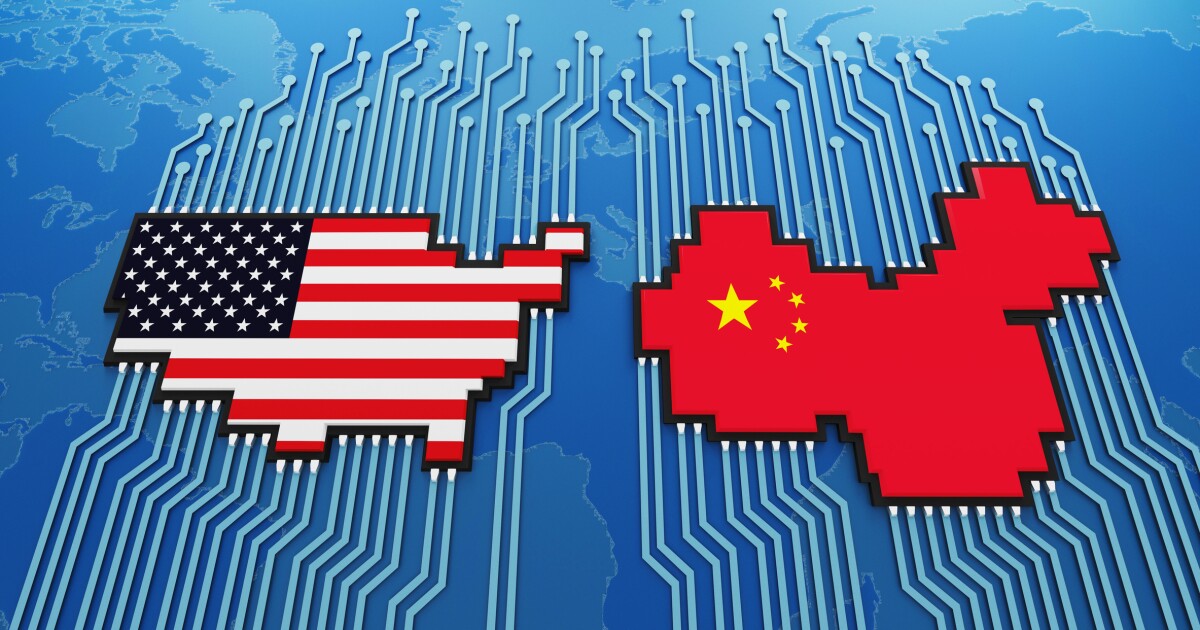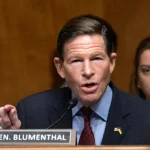

New conditions imposed by the Biden administration threaten to negate the effects of massive subsidies for semiconductor chip manufacturing that Congress enacted in an effort to ensure that the United States is not at the mercy of China for key technologies.
The Commerce Department opened applications on Tuesday for companies to receive subsidies funded by the CHIPS Act, a bill passed in July 2022 that provides for $53 billion in funding for chipmakers to help the U.S. compete with China.
While the bill was passed with bipartisan support, the Biden administration attached several new guidelines to the applications that promote Democratic social causes. Companies receiving the subsidies will be required to provide daycare
, partner with unions, and comply with environmental policies, among other stipulations.
Commerce Secretary Gina Raimondo has touted the strings attached to the funding as a means of advancing the administration’s broader agenda for the workforce and domestic industry.
“CHIPS won’t be successful unless we expand the labor force. We can’t do that without affordable child care,” she tweeted
. “That’s why we’re requiring companies that receive funding to tell us how they plan to provide affordable child care for workers.”
But critics warn that the conditions could raise the cost of setting up new factories to such an extent that it could undercut the point of the bill, which passed with the support of Republican senators like Mitch McConnell (KY) and Nebraska’s Ben Sasse, who thought it worthwhile to develop domestic production.
“Taxpayers are really getting a raw deal,” Scott Lincicome, the director of general economics at the libertarian Cato Institute, told the Washington Examiner. “They support chip subsidies because they want semiconductors. They’re not doing it because they want childcare.”
PRO ACT PUTS UNION LEADERSHIP AHEAD OF WORKERS
Companies would also be pushed to detail their relationships with unions, offer additional training for those pursuing future employment outside the company, purchase supplies from domestic producers, and ensure compliance with the National Environmental Policy Act. NEPA, as the law is known, is one of the top obstacles to the construction of infrastructure nationwide, and a bipartisan set of lawmakers, including, notably, Sen. Joe Manchin (D-WV), has pushed for NEPA regulations to be reformed to allow projects to be built.
The new guidelines will “increase costs unnecessarily and reduce the risk that the policy is successful and achieving its primary goals,” Adam Ozimek, chief economist at the Economic Innovation Group, told the Washington Examiner.
Steel would be a common source of increased cost. American steel is considered some of the most expensive in the world, Lincicome said, due to tariffs and other financial restrictions. Forcing companies to only buy American steel would cost the company more than before.
Not all of the guidelines are mandatory, Ozimek noted, but they could still reduce the effect of the legislation by adding costs.
The Biden administration has lofty goals for the CHIPS Act. It has already claimed success in enticing state governments and manufacturers such as Intel and TSMC to construct new domestic chip fabricator plants. And Raimondo announced on Feb. 23 that her department intended to use the tens of billions of dollars provided by the law to construct at least two semiconductor factory hubs in the next few years.
“Any time the government hands out giant tubs of money and does it based on more political concerns than economic ones? You run the risk of having a Foxconn,” Lincicome said, referencing a $10 billion display panel factory project for southern Wisconsin that was given subsidies by the state government and touted by the Trump Administration. The factory began construction in 2017 and was presented as a major source of job creation. The project was mostly abandoned in 2021, with a small staff maintaining it despite the financial support.
CLICK HERE TO READ MORE FROM THE WASHINGTON EXAMINER
The Commerce Department also passed several export controls to limit Chinese access to U.S. chips, a motion China is attempting to challenge in the World Trade Organization.
At the same time, China has cut back on its government funding for improved domestic chip production.






